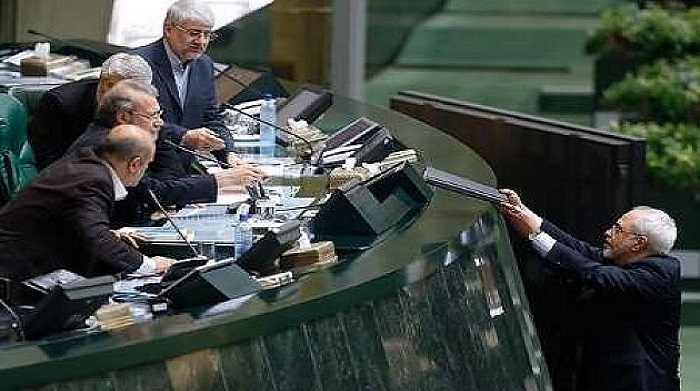JCPOA Creates Commitment

I agree with what has been argued on the Iran Deal because national interests may be considered and gained through non-legal ways. In other words, it would be acceptable to gain and maintain national interests in non-legal ways when necessary. However, we are now faced with a legal document. According to Articles 77 and 125 of the Iranian Constitution, any agreement, treaty, or terms like these in international law should be adopted by the Parliament. So, if we take a brief look at the deal and our friends’ claims that the deal is a political pact, some points should be touched upon:
Firstly, what is meant by the term ‘treaty’? If Iran accepts not to carry out some actions, including some of its activities in periods of 10, 15, and 20 years, or halt some activities, can we not call it a legal commitment? What are our technical commitments?
Second, what is meant by the term ‘voluntary activities’? Every deal, even in a simple one between two people, is based on a voluntary intention, since any force and imposition would cancel consent in the deal, and therefore there would be no deal. Thus, what would the definition of the word ‘voluntary’ be in deals? So, this concept should be clarified.
Thirdly, an issue previously passed in the Parliament has been referred to, based on which the government was restricted. Now we are faced with a document which includes agreed-upon issues that need to be approved by the Parliament. In other words, if there is a deal and commitments are accepted, it should then be reviewed by the Parliament. In other words, if we want to have a deal with commitments, it should be reviewed in the Parliament which would then declare its final opinion.
Fourth, every country’s domestic system is different. According to the US system, all treaties and deals are divided in three categories. In Iran however, there is no classification. According to Articles 77 and 125 of the Constitution, any international treaty and deal should be adopted by the Parliament. This is the policy of the system. Additionally, the Guardian Council provided an interpretation in the 1990s. According to this interpretation, any document that creates any commitment is regarded as a treaty and should be dealt with accordingly.
Fifth, beyond what our national interests are, we are now faced with a document that binds the two parties with commitments. In this document, there is an executive guarantee to implement commitments and even predict a joint commission to resolve possible conflicts. Now the question is, why would there be a joint commission? If there is no commitment and all the terms in the document are voluntary, why is there a joint commission? Thus, the prediction of the establishment of a joint commission indicates commitments in the document.
This means that the Islamic Republic should take some steps in return for the other party's commitments, and in a case of any violation, it should be referred to the joint commission.
Sixth, the temporary implementation of the agreement is not clear. In fact, the fact that the government can temporarily implement part of the agreement before Parliament’s final approval is ambiguous. Here, we should pay attention to the policy of the Guardian Council. This is the procedure.
Translated by Parisa Farhadi

